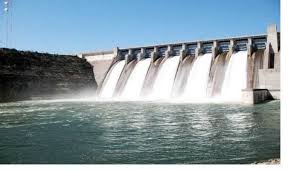The water crisis in Kuwadzana has become a pressing concern for residents, as inadequate infrastructure and the city council’s inability to maintain and replace outdated water pipes have left them without access to clean tap water for a week.
This situation poses a risk of a cholera outbreak, especially considering Zimbabwe’s ongoing cholera crisis, which has seen thousands of suspected cases and hundreds of fatalities reported since early 2023.
Many residents have been forced to turn to unsafe water sources in search of hydration, heightening their fears of contracting waterborne diseases.
The frustration with Harare City Council’s response is palpable, with residents expressing a sense of betrayal as they pay rates but receive minimal services in return. Complaints about sewage overflow and uncollected garbage further exacerbate concerns around public health in the community.
Despite the council’s acknowledgment of the problem and plans to address the pipe bursts, many remain skeptical about the effectiveness and timeliness of their efforts.
The council spokesperson, Stanley Gama, indicated that the issue of outdated pipes is extensive, pointing out that over 5,000 kilometers of old piping requires replacement, emphasizing the significant funding needed for such a project.
While some relief has come from a presidential borehole drilling initiative aimed at alleviating water shortages, many of these sources have become non-operational or insufficient.
As a consequence, residents increasingly find themselves at risk of other water-related health issues, as the lack of potable water forces them to rely on potentially contaminated sources.
The situation in Kuwadzana underscores not only the critical state of the local water infrastructure but also highlights the broader challenges associated with water management and investment.
A United Nations report discussed the need for a comprehensive understanding of water issues in connection with climate change and infrastructure financing, suggesting that much more needs to be invested in sustainable water solutions alongside initiatives targeting greenhouse gas emissions.
Ultimately, the ongoing water crisis reflects systemic issues within urban water supply systems in Zimbabwe, requiring immediate attention and long-term strategies to secure safe and reliable access to water for all residents.
SOURCE : NEWSREPORTZIM.COM










